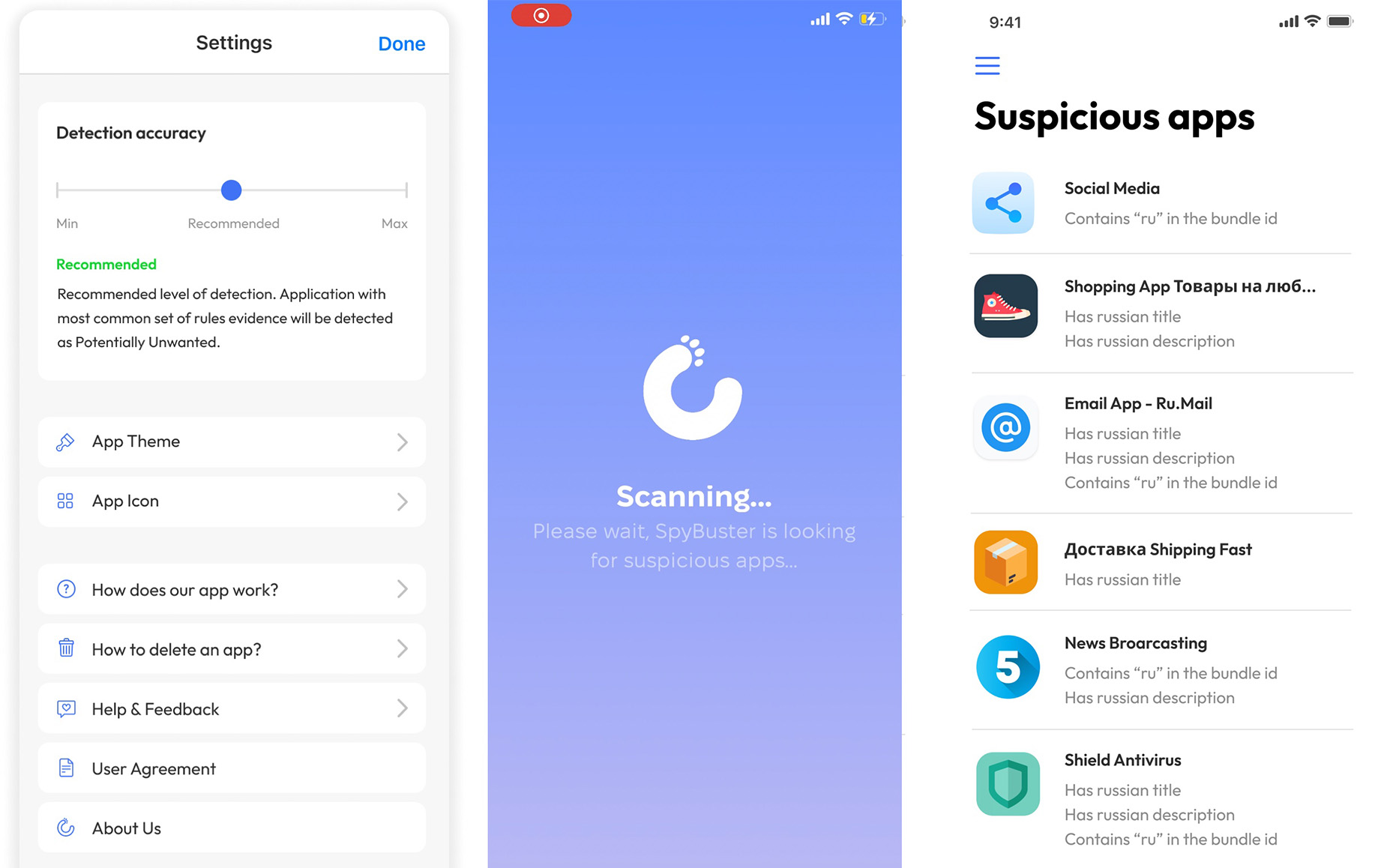News
SpyBuster Helps Identify iOS Apps With Servers In Russia And Belarus
When you launch SpyBuster, it automatically begins examining installed apps, looking for connections with Russia or Belarus.

Soon after Russia invaded Ukraine last February, the number of cyber attacks launched against both countries surged. Because targeted attacks against specific government entities are what usually makes the headlines, it’s easy to overlook the role we all play in today’s cyber warfare.
As we use our beloved iPhones to help us navigate our daily lives, we rely on a large number of apps, many of which send potentially sensitive information to remote servers. That’s usually not a problem except when the servers that the app is communicating with are located in Russia or Belarus, and the iOS version of SpyBuster by MacPaw is here to help you discover all apps on your device that do just that.
“In 2016, Russia adopted legislation that requires telecom providers to store private user data, including the content of voice calls, images, and text messages, for 6 months. It also orders them to retain metadata like sender and recipient information, sending time, and location, for 3 years,” explains Eugene Kalnyk, PR Specialist at MacPaw. “The so-called Yarovaya Law allows FSB and other Russian law enforcement agencies nearly unlimited access to any user data on Russian servers without a court order.”
SpyBuster debuted in March 2022 as a macOS privacy tool. It took MacPaw only three months to release it as a Chrome extension. With the recent release of the iOS version, users can finally protect their privacy everywhere — from desktop computers and laptops to the web to mobile devices.
Just like CleanMyMac X and other software applications developed by MacPaw, SpyBuster is designed to be user-friendly, and it shows through and through.
Also Read: DDoS Attacks Are A Growing Threat In Gaming
When you launch SpyBuster, it automatically begins examining installed apps, looking for connections with Russia or Belarus. It then presents a list of suspicious apps, allowing you to see at a glance why the apps should be avoided. Less experienced users may also appreciate the inclusion of detailed uninstall instructions.

The settings section of the SpyBuster app lets you adjust your detection accuracy setting, which influences how many privacy offenses an app has to commit before being flagged as suspicious.
To learn more about SpyBuster, visit its official website, where you can find download links for iOS, macOS, and Chrome.
News
Samsung Smart Glasses Teased For January, Software Reveal Imminent
According to Korean sources, the new wearable will launch alongside the Galaxy S25, with the accompanying software platform unveiled this December.

Samsung appears poised to introduce its highly anticipated smart glasses in January 2025, alongside the launch of the Galaxy S25. According to sources in Korea, the company will first reveal the accompanying software platform later this month.
As per a report from Yonhap News, Samsung’s unveiling strategy for the smart glasses echoes its approach with the Galaxy Ring earlier this year. The January showcase won’t constitute a full product launch but will likely feature teaser visuals at the Galaxy S25 event. A more detailed rollout could follow in subsequent months.
Just in: Samsung is set to unveil a prototype of its augmented reality (AR) glasses, currently in development, during the Galaxy S25 Unpacked event early next year, likely in the form of videos or images.
Additionally, prior to revealing the prototype, Samsung plans to introduce…
— Jukanlosreve (@Jukanlosreve) December 3, 2024
The Galaxy Ring, for example, debuted in January via a short presentation during Samsung’s Unpacked event. The full product unveiling came later at MWC in February, and the final release followed in July. Samsung seems to be adopting a similar phased approach with its smart glasses, which are expected to hit the market in the third quarter of 2025.
A Collaborative Software Effort
Samsung’s partnership with Google has played a key role in developing the smart glasses’ software. This collaboration was first announced in February 2023, with the device set to run on an Android-based platform. In July, the companies reiterated their plans to deliver an extended reality (XR) platform by the end of the year. The software specifics for the XR device are expected to be unveiled before the end of December.
Reports suggest that the smart glasses will resemble Ray-Ban Meta smart glasses in functionality. They won’t include a display but will weigh approximately 50 grams, emphasizing a lightweight, user-friendly design.
Feature Set And Compatibility
The glasses are rumored to integrate Google’s Gemini technology, alongside features like gesture recognition and potential payment capabilities. Samsung aims to create a seamless user experience by integrating the glasses with its broader Galaxy ecosystem, starting with the Galaxy S25, slated for release on January 22.


























